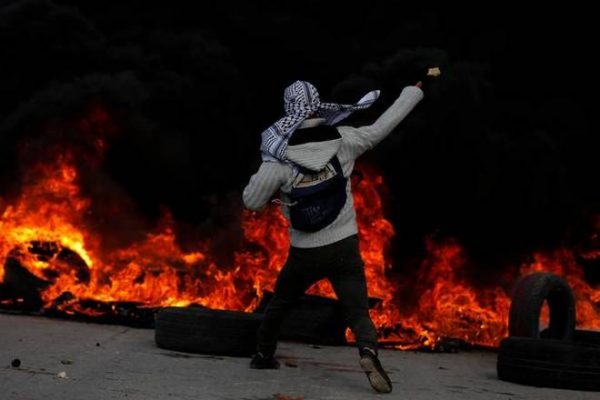
Hamas leader ca
Russia does not agree with the US position to recognize Jerusalem as Israel’s capital, Deputy Foreign Minister Gennady Gatilov told TASS on Thursday.
“We don’t agree with this,” he stressed.
According to Gatilov, this decision by the US “will worsen a general situation in Palestinian-Israeli relations, in the Middle East on the whole”.
“The decision to move the embassy to Jerusalem made by the US administration, President [Donald] Trump is at variance with relevant resolutions of the UN Security Council, the UN General Assembly, and certainly we believe that these are wrongful moves that can only complicate the course of a further development of the situation in the Middle East,” the senior diplomat said.
The issue on the status of Jerusalem should be tackled within the framework of the Palestinian-Israeli dialogue, Russian Ambassador to Israel Alexander Shein also said in a statement.
“Recognizing West Jerusalem as the capital of Israel, we do not impose any solutions on the parties concerned. All issues, including the status of Jerusalem, should be resolved at the Palestinian-Israeli negotiations,” the diplomat stressed.
Russia’s stance
The Russian Embassy can be moved from Tel Aviv to West Jerusalem only after all problems related to the status of the Palestinian territories are solved, Russian Ambassador to Israel Alexander Shein stated.
“In practical terms, the Russian Embassy can be moved from Tel Aviv to West Jerusalem once all problems related to the final status of the Palestinian territories are solved,” the diplomat stressed.
“While recognizing West Jerusalem as the capital of Israel, we do not impose any solutions on the parties concerned. All issues, including the status of Jerusalem, should be resolved at the Palestinian-Israeli negotiations,” Shein noted.
He recalled that, according to the Russian Foreign Ministry’s statement of April 6, 2017, “the Russian leadership decided to recognize West Jerusalem as the capital of Israel.” “This statement is aimed, above all, at reaffirming Russia’s stance in favor of a two-state solution to the Palestinian-Israeli crisis,” he said.
Speaking at the White House on Wednesday, US President Donald Trump stated that “it is time to officially recognize Jerusalem as the capital of Israel.” He directed the Department of State to start making arrangements to move the US Embassy from Tel Aviv to Jerusalem.
The status of Jerusalem is one of the key issues of the Israeli-Palestinian crisis. Israel established control over the eastern part of the city during the 1967 conflict. It insists that Jerusalem is its single and indivisible capital, while the Palestinians want to make the eastern part of the city the capital of their state.
TASS

Leave a Reply
You must be logged in to post a comment.